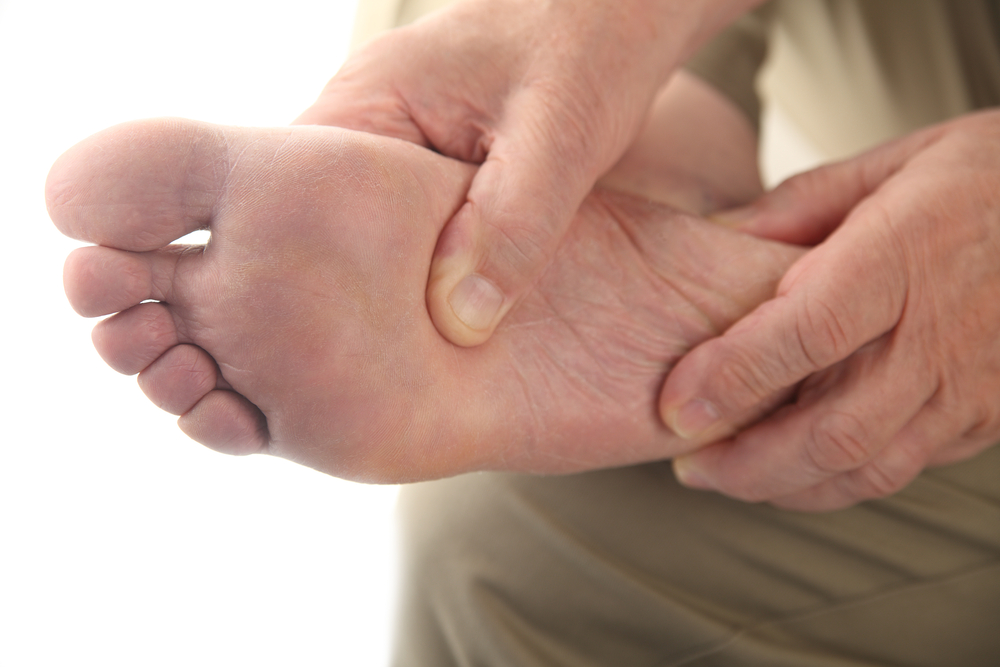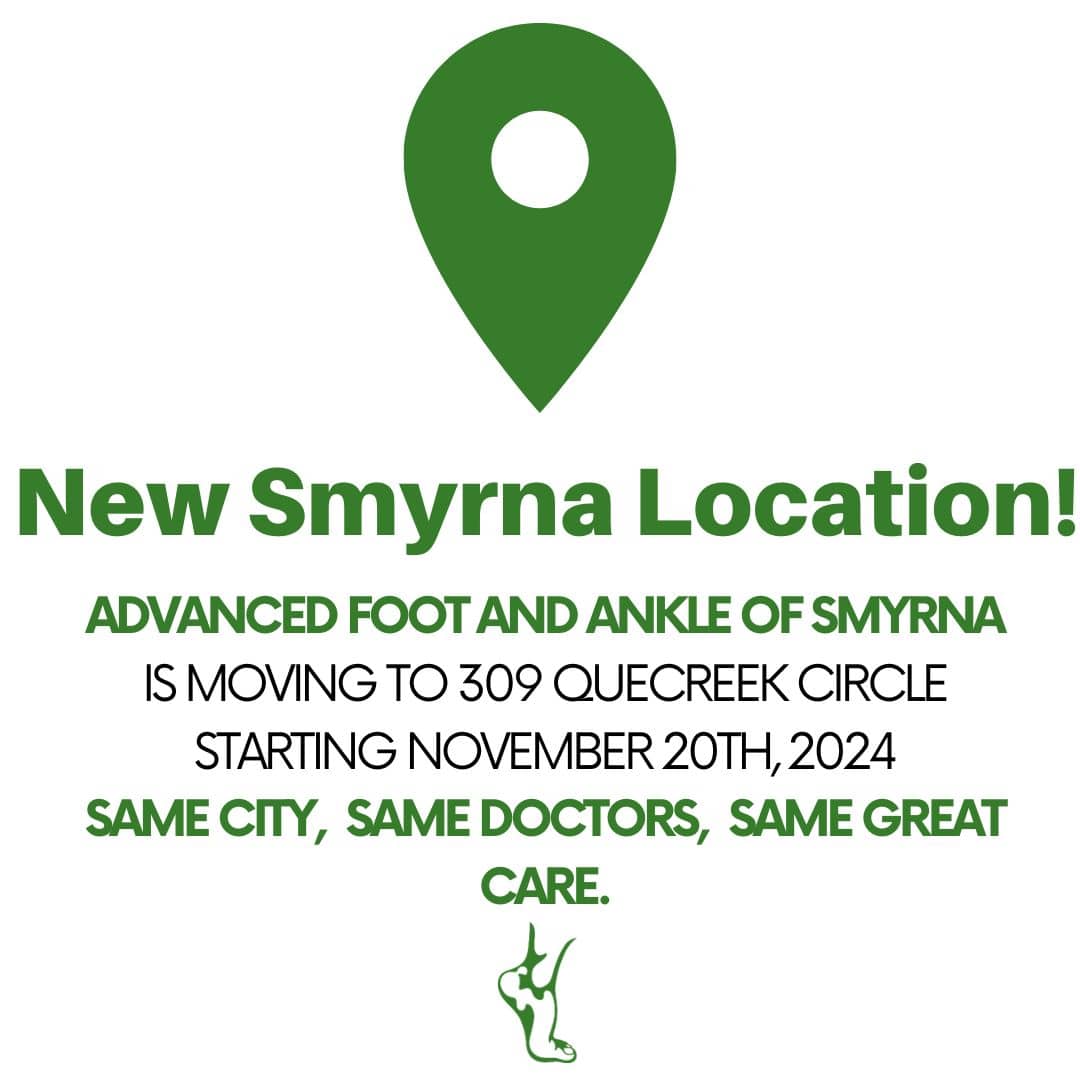Items filtered by date: December 2023
Symptoms and Diagnosis of Heel Pain

Heel pain can come from many different things. The area of the heel that is painful can give clues about the cause. The most frequent cause of heel pain is plantar fasciitis, which is characterized by sharp pain on the bottom of the heel when standing after sitting or lying down. Heel pain can also come from a crack in the heel bone, if one has been more active or walked on hard ground. Pain at the back of the heel can arise from problems with the Achilles tendon, or, if the tendon at another spot is hurting, that is where the pain will be. A bony bump on the heel that causes swelling or pain can also cause back of heel pain. If the inside part of the foot hurts after standing for a long time, it may indicate a nerve is being compressed. Additionally, if the outside part of the foot hurts or feels wobbly, especially when active or on rough ground, it could be sinus tarsi syndrome. If you have any kind of heel pain, it is suggested that you make an appointment with a podiatrist for a proper diagnosis and treatment plan.
Many people suffer from bouts of heel pain. For more information, contact one of our podiatrists of Advanced Foot & Ankle Care Centers. Our doctors can provide the care you need to keep you pain-free and on your feet.
Causes of Heel Pain
Heel pain is often associated with plantar fasciitis. The plantar fascia is a band of tissues that extends along the bottom of the foot. A rip or tear in this ligament can cause inflammation of the tissue.
Achilles tendonitis is another cause of heel pain. Inflammation of the Achilles tendon will cause pain from fractures and muscle tearing. Lack of flexibility is also another symptom.
Heel spurs are another cause of pain. When the tissues of the plantar fascia undergo a great deal of stress, it can lead to ligament separation from the heel bone, causing heel spurs.
Why Might Heel Pain Occur?
- Wearing ill-fitting shoes
- Wearing non-supportive shoes
- Weight change
- Excessive running
Treatments
Heel pain should be treated as soon as possible for immediate results. Keeping your feet in a stress-free environment will help. If you suffer from Achilles tendonitis or plantar fasciitis, applying ice will reduce the swelling. Stretching before an exercise like running will help the muscles. Using all these tips will help make heel pain a condition of the past.
If you have any questions please contact our offices located in Nashville, Smyrna, Spring Hill, Columbia, Dickson, Fairview, Hohenwald, TN and the Middle Tennessee community . We offer the newest diagnostic and treatment technologies for all your foot and ankle needs.
Fundamental Insights on Preventing Running Injuries

Embarking on a running journey brings not just the thrill of the track but also the responsibility of safeguarding against potential injuries. Start with a proper warm-up, gradually transitioning from brisk walking to a light jog, allowing muscles to adapt to the forthcoming activity. Choosing the right footwear is paramount. Opt for shoes that provide adequate support and cushioning based on your foot arch and running terrain. Maintain a balanced training routine that incorporates strength and flexibility exercises, focusing on core muscles and leg stability. Listen to your body and incorporate rest days to allow for recovery and muscle repair. Pay attention to running surfaces, choosing softer terrains when possible to reduce the impact on joints. Lastly, progress your running intensity gradually to avoid overexertion. If you would like more information about how to prevent running injuries in addition to protecting the feet, it is suggested that you consult a podiatrist.
Exercising your feet regularly with the proper foot wear is a great way to prevent injuries. If you have any concerns about your feet, contact one of our podiatrists of Advanced Foot & Ankle Care Centers. Our doctors will treat your foot and ankle needs.
How to Prevent Running Injuries
Many common running injuries are caused by overuse and overtraining. When the back of the kneecap starts wearing out and starts causing pain in your knee, this is commonly referred to as runner’s knee. Runner’s knee is a decrease in strength in your quadriceps and can occur if you’re not wearing properly fitted or supporting shoes. To prevent runner’s knee, focusing on hip strengthening is a good idea, as well as strengthening your quads to keep the kneecaps aligned.
What Are Some Causes of Running Injuries?
- One cause of a common running injury is called iliotibial band syndrome.
- Plantar fasciitis is also another common injury.
- Stress fractures can occur from overtraining, lack of calcium, or even your running style.
Best Ways to Prevent Running Injuries
- Wear footwear that fits properly and suits your running needs.
- Running shoes are the only protective gear that runners have to safeguard them from injury.
- Make a training schedule. Adding strengthening exercises as well as regular stretching can help keep you strong and limber and can lessen the possibility of injuries.
- Stretching keeps muscles limber; this will help you gain better flexibility.
If you have any questions please feel free to contact our offices located in Nashville, Smyrna, Spring Hill, Columbia, Dickson, Fairview, Hohenwald, TN and the Middle Tennessee community . We offer the newest diagnostic and treatment technologies for all your foot and ankle needs.
Definition and Professional Environment of a Podiatrist

Podiatrists, medical professionals specializing in the care of feet and ankles, play a vital role in promoting overall foot health. Their responsibilities extend to diagnosing and treating a diverse array of foot and ankle conditions, ranging from routine care to complex surgical interventions. Beyond addressing immediate concerns, podiatrists also educate patients on preventative measures and lifestyle choices to maintain optimal foot well-being. Working conditions for podiatrists often involve a combination of clinical and surgical settings. They may operate private practices, collaborate in group medical practices, or contribute to healthcare teams in hospitals. Regular interactions with patients necessitate effective communication skills, as podiatrists discuss medical histories, treatment plans, and educate individuals on proper foot care practices. The dynamic nature of podiatric work requires a blend of compassion, expertise, and a commitment to fostering the mobility and comfort of those seeking their specialized care. If you are interested in learning more about podiatry and its benefit to you, it is suggested that you confer with this type of doctor who can answer any questions you may have.
If you are experiencing pain in the feet or ankles, don’t join the stubborn majority refusing treatment. Feel free to contact one of our podiatrists from Advanced Foot & Ankle Care Centers. Our doctors can provide the care you need to keep you pain-free and on your feet.
What Is a Podiatrist?
Someone would seek the care of a podiatrist if they have suffered a foot injury or have common foot ailments such as heal spurs, bunions, arch problems, deformities, ingrown toenails, corns, foot and ankle problems, etc.
Podiatric Treatment
A podiatrist will treat the problematic areas of the feet, ankle or lower leg by prescribing the following:
- Physical therapy
- Drugs
- Orthotic inserts or soles
- Surgery on lower extremity fractures
A common podiatric procedure a podiatrist will use is a scanner or force plate which will allow the podiatrist to know the designs of orthotics. Patients are then told to follow a series of tasks to complete the treatment. The computer will scan the foot a see which areas show weight distribution and pressure points. The podiatrist will read the analysis and then determine which treatment plans are available.
If you have any questions please feel free to contact our offices located in Nashville, Smyrna, Spring Hill, Columbia, Dickson, Fairview, Hohenwald, TN and the Middle Tennessee community . We offer the newest diagnostic and treatment technologies for all your foot and ankle needs.
Early Indicators of Foot Problems in Diabetic Patients

People with diabetes are at a higher risk of developing serious foot problems, which can ultimately lead to amputation if not addressed promptly. This is especially true if they are considered to have a high risk of foot issues. Monitoring your feet daily is crucial if you fall into this category. It is essential to be aware of signs such as tingling, pain, shiny skin, and loss of feeling. Additional symptoms can include swelling, lack of sweat, slow healing wounds, and blisters or cuts that you cannot feel. If you have diabetes and notice signs of foot problems, it is strongly suggested that you make an appointment with a podiatrist who will assess your risk level, create a personalized care plan, and provide appropriate treatment for existing foot conditions.
Diabetic foot care is important in preventing foot ailments such as ulcers. If you are suffering from diabetes or have any other concerns about your feet, contact one of our podiatrists from Advanced Foot & Ankle Care Centers. Our doctors can provide the care you need to keep you pain-free and on your feet.
Diabetic Foot Care
Diabetes affects millions of people every year. The condition can damage blood vessels in many parts of the body, especially the feet. Because of this, taking care of your feet is essential if you have diabetes, and having a podiatrist help monitor your foot health is highly recommended.
The Importance of Caring for Your Feet
- Routinely inspect your feet for bruises or sores.
- Wear socks that fit your feet comfortably.
- Wear comfortable shoes that provide adequate support.
Patients with diabetes should have their doctor monitor their blood levels, as blood sugar levels play such a huge role in diabetic care. Monitoring these levels on a regular basis is highly advised.
It is always best to inform your healthcare professional of any concerns you may have regarding your feet, especially for diabetic patients. Early treatment and routine foot examinations are keys to maintaining proper health, especially because severe complications can arise if proper treatment is not applied.
If you have any questions please feel free to contact our offices located in Nashville, Smyrna, Spring Hill, Columbia, Dickson, Fairview, Hohenwald, TN and the Middle Tennessee community . We offer the newest diagnostic and treatment technologies for all your foot and ankle needs.



